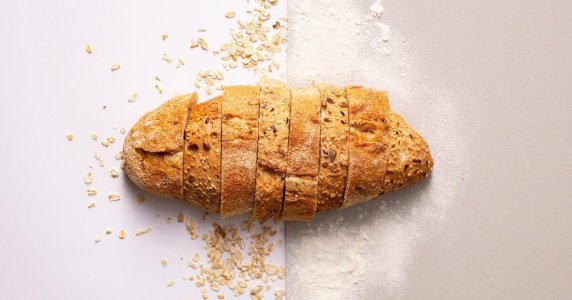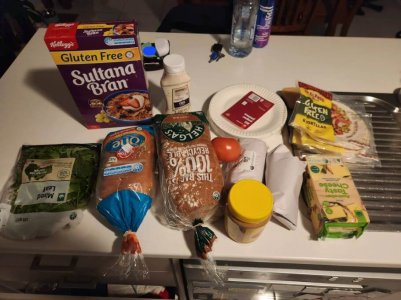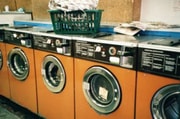Outrageous hidden fees at Woolworths exposed by shopper – Here’s what you need to know
- Replies 22
Whether emerging from a regular health check or as a result of years of discomfort when diagnosed with certain diseases such as gluten intolerance, lifestyle changes are in order. Adapting to a new way of eating can be one of the most difficult adjustments to make.
Unfortunately, it can also be an expensive one.
A fed-up Woolworths customer recently brought this issue to light after sharing on the social media platform Reddit the hefty bill he received for his modest grocery shop, which amounted to an astounding $100 for just 13 items.
It wasn't long before his frustration resonated with fellow coeliacs and gluten-intolerant individuals.
‘Unbelievable,’ he captioned the image of his purchase.
His dietary restrictions, shared with millions of Australians, left him stuck with higher prices for 'gluten-free' versions of everyday items.
Upon further discussion, the customer revealed that he suffers from coeliac disease – which is an autoimmune disorder that causes painful reactions upon ingesting gluten, a protein found in wheat, rye, and barley.
‘Over the last two decades, it's gotten easier to eat the stuff but more expensive to do so. I get hammered with surcharges that I don't get to choose,’ the shopper explained.
With no choice but to purchase gluten-free products, he found himself paying a premium for his groceries.
It turns out he's not alone.
Fellow coeliacs chimed in with their frustrations. ‘As a person with coeliac, these prices suck,’ one Reddit user commented.
‘It does. I'm poor. And we NEED to eat GF [gluten-free],’ another echoed.
While someone said that maybe the shopper could have avoided high prices if they had shopped somewhere else.
To which another person replied: ‘You can't really fault them for shopping at Woolies, we've only got a max of like four different options in a given city, and they might only be near a Woolies.
‘Oh, you have an allergy? That will cost you,’ another quipped.
Australians with gluten sensitivities are taking a hit in their wallets. Coeliac Australia states that around one in 70 Aussies have coeliac disease, and a further 11 per cent follow a gluten-free diet.
In total, almost 3 million people in the country are forced to pay extra at the supermarket checkout.
A 2016 study by researchers from the University of Wollongong revealed that gluten-free households spend 17 per cent more on groceries than their gluten-consuming peers, and that gap hasn't narrowed in the years since.
Financial comparison site Mozo explains that manufacturers face additional costs for dedicated facilities to produce gluten-free items, and retailers often target a relatively small market segment, offering little motivation to lower prices.
Some gluten-free products, such as bread, also require more ingredients, increasing production expenses.
But there is a silver lining for our gluten-free friends.
A membership with Coeliac Australia provides access to a range of discounts and special offers for dining out and shopping at participating businesses across the nation.
Woolworths serves as the official supermarket partner of Coeliac Australia, granting members a 5 per cent discount off participating gluten-free products in-store, online, and at participating Woolworths Metro outlets.
While this might not eliminate the price disparity entirely, it can significantly reduce the burden on your grocery budget.
Here at the Seniors Discount Club, it's our mission to keep you informed about the deals and discounts that matter to you. You can find participating Woolies products here.
Shopping for gluten-free products at Woolworths with a Coeliac Australia membership might just help save a few dollars, making life that little bit easier for our members who face the daily challenge of living with dietary restrictions.
 Have you noticed these hidden fees while shopping for groceries? Share your thoughts about this story in the comments below!
Have you noticed these hidden fees while shopping for groceries? Share your thoughts about this story in the comments below!
Unfortunately, it can also be an expensive one.
A fed-up Woolworths customer recently brought this issue to light after sharing on the social media platform Reddit the hefty bill he received for his modest grocery shop, which amounted to an astounding $100 for just 13 items.
It wasn't long before his frustration resonated with fellow coeliacs and gluten-intolerant individuals.
‘Unbelievable,’ he captioned the image of his purchase.
His dietary restrictions, shared with millions of Australians, left him stuck with higher prices for 'gluten-free' versions of everyday items.
Upon further discussion, the customer revealed that he suffers from coeliac disease – which is an autoimmune disorder that causes painful reactions upon ingesting gluten, a protein found in wheat, rye, and barley.
‘Over the last two decades, it's gotten easier to eat the stuff but more expensive to do so. I get hammered with surcharges that I don't get to choose,’ the shopper explained.
With no choice but to purchase gluten-free products, he found himself paying a premium for his groceries.
It turns out he's not alone.
Fellow coeliacs chimed in with their frustrations. ‘As a person with coeliac, these prices suck,’ one Reddit user commented.
‘It does. I'm poor. And we NEED to eat GF [gluten-free],’ another echoed.
While someone said that maybe the shopper could have avoided high prices if they had shopped somewhere else.
To which another person replied: ‘You can't really fault them for shopping at Woolies, we've only got a max of like four different options in a given city, and they might only be near a Woolies.
‘Oh, you have an allergy? That will cost you,’ another quipped.
Australians with gluten sensitivities are taking a hit in their wallets. Coeliac Australia states that around one in 70 Aussies have coeliac disease, and a further 11 per cent follow a gluten-free diet.
In total, almost 3 million people in the country are forced to pay extra at the supermarket checkout.
A 2016 study by researchers from the University of Wollongong revealed that gluten-free households spend 17 per cent more on groceries than their gluten-consuming peers, and that gap hasn't narrowed in the years since.
Financial comparison site Mozo explains that manufacturers face additional costs for dedicated facilities to produce gluten-free items, and retailers often target a relatively small market segment, offering little motivation to lower prices.
Some gluten-free products, such as bread, also require more ingredients, increasing production expenses.
But there is a silver lining for our gluten-free friends.
A membership with Coeliac Australia provides access to a range of discounts and special offers for dining out and shopping at participating businesses across the nation.
Woolworths serves as the official supermarket partner of Coeliac Australia, granting members a 5 per cent discount off participating gluten-free products in-store, online, and at participating Woolworths Metro outlets.
While this might not eliminate the price disparity entirely, it can significantly reduce the burden on your grocery budget.
Here at the Seniors Discount Club, it's our mission to keep you informed about the deals and discounts that matter to you. You can find participating Woolies products here.
Shopping for gluten-free products at Woolworths with a Coeliac Australia membership might just help save a few dollars, making life that little bit easier for our members who face the daily challenge of living with dietary restrictions.
Key Takeaways
- A Woolworths shopper voiced his frustration at the high cost of his grocery shop due to his coeliac disease and the need for gluten-free products.
- Fellow coeliacs shared similar grievances about the high prices of gluten-free items.
- Around one in 70 Australians have coeliac disease, and 11 per cent follow a gluten-free diet, meaning nearly 3 million people are paying extra at the supermarket.
- Coeliac Australia members have access to discounts and special offers at participating businesses, including a 5 per cent discount off participating gluten-free products at Woolworths.









